The Allen-Bradley 1785-L60B/E Processor Module and the 1785-ENET A Ethernet Interface Module are components from the Allen-Bradley PLC-5 family, designed to provide advanced control and connectivity in industrial automation systems. Here’s a breakdown of their key features, functions, and applications:
1. Allen-Bradley 1785-L60B/E Processor Module:
Key Features:
- Model: 1785-L60B/E (Part of the PLC-5/60 series)
- Processor Type: This is a PLC-5 series processor, typically used in large-scale, high-performance applications. It supports programmable control for complex industrial systems.
- Processing Power: The 1785-L60B/E is a high-speed processor designed to handle large amounts of data and I/O operations. It offers 6K words of memory (typically) and has a high scan rate, making it suitable for complex automation tasks.
- Program Capacity: Typically offers up to 64K words of program memory (depending on the specific model) and up to 2048 I/O points.
- Compatibility: Compatible with the PLC-5 I/O modules and can be used for both small and large control systems.
- Communication: The 1785-L60B/E processor supports both Remote I/O (RIO) and Ethernet/IP networks via add-on modules (like the 1785-ENET A Ethernet Interface Module).
- Integrated Features: It typically supports advanced control functions like PID control, data logging, alarm processing, and motion control.
Applications:
- Complex Automation Systems: Ideal for large-scale industrial systems, such as manufacturing lines, processing plants, packaging systems, and material handling.
- Heavy Industry: Common in industries like oil & gas, automotive, chemical processing, and utilities, where large numbers of I/O points need to be controlled and monitored.
- Critical Systems: Frequently used in applications where system uptime is crucial, and high-speed data processing is required.
2. Allen-Bradley 1785-ENET A Ethernet Interface Module:
Key Features:
- Model: 1785-ENET A
- Function: This module adds Ethernet communication capability to Allen-Bradley PLC-5 processors, including the 1785-L60B/E processor. The Ethernet interface allows the PLC-5 to communicate over Ethernet networks, enabling remote monitoring, control, and integration with other systems.
- Ethernet Port: The 1785-ENET A has an RJ45 Ethernet port, allowing it to connect to Ethernet networks for communication with SCADA systems, HMI (Human-Machine Interface) devices, and other networked systems.
- Protocol: Supports Ethernet/IP (Industrial Protocol), which is the standard for real-time control and information exchange over Ethernet in industrial systems. It allows seamless communication between PLCs, HMIs, and other industrial devices.
- Data Transfer: Provides high-speed data transfer and can handle a large number of messages per second, making it ideal for real-time control applications.
- Network Integration: Enables the PLC-5 system to integrate with modern Ethernet-based networks, allowing easier integration with other control systems, remote devices, and enterprise-level systems.
Applications:
- System Integration: The 1785-ENET A module is essential for integrating legacy PLC-5 systems with modern Ethernet-based networks or Ethernet/IP networks in applications like factory automation, process control, or remote monitoring.
- Data Access & Monitoring: Provides access to real-time data from the PLC to external systems like SCADA (Supervisory Control and Data Acquisition) or MES (Manufacturing Execution Systems).
- Communication with External Devices: Facilitates communication between the PLC-5 and various Ethernet-compatible devices, such as HMIs, PCs, networked sensors, and actuators.

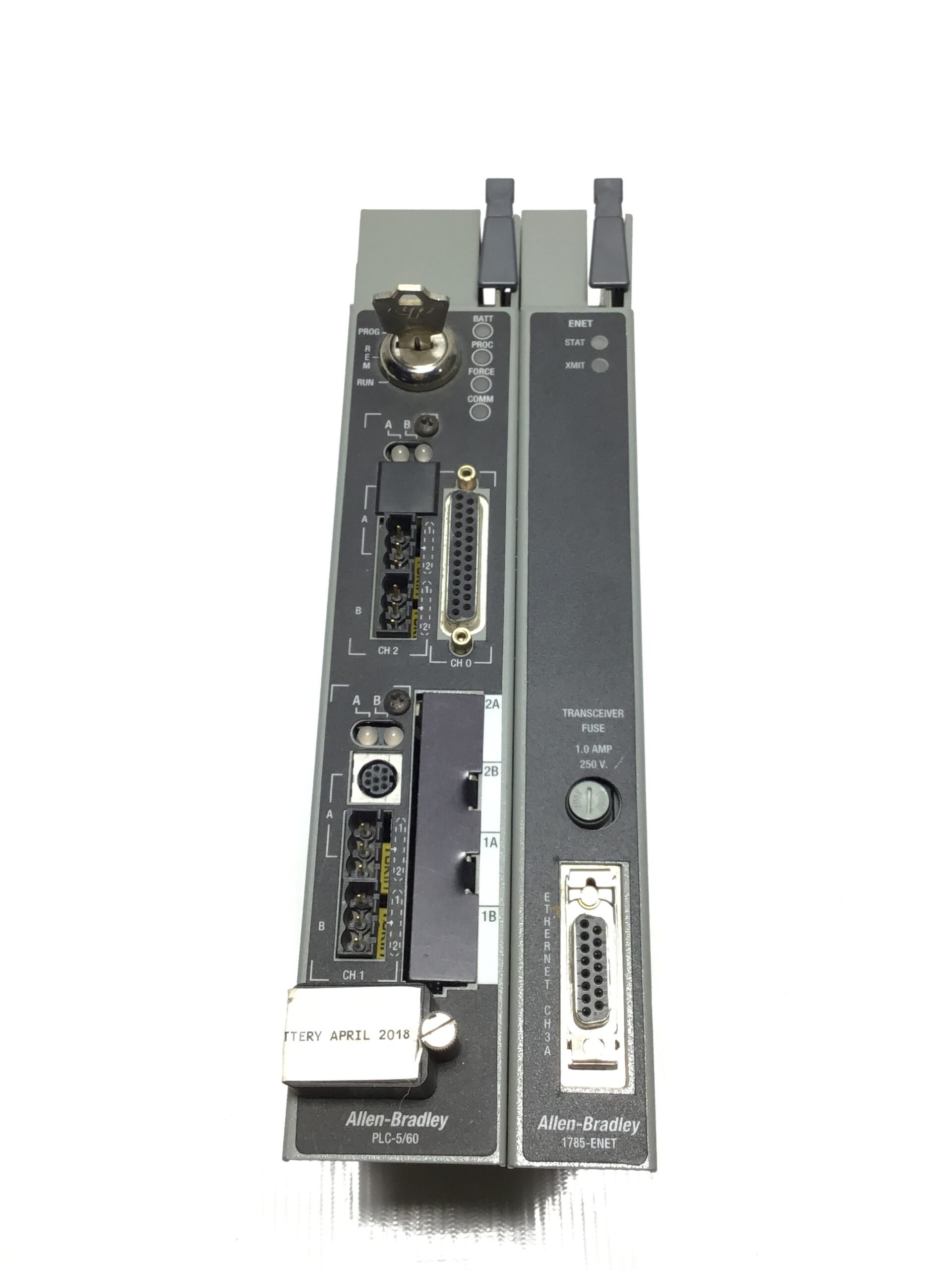
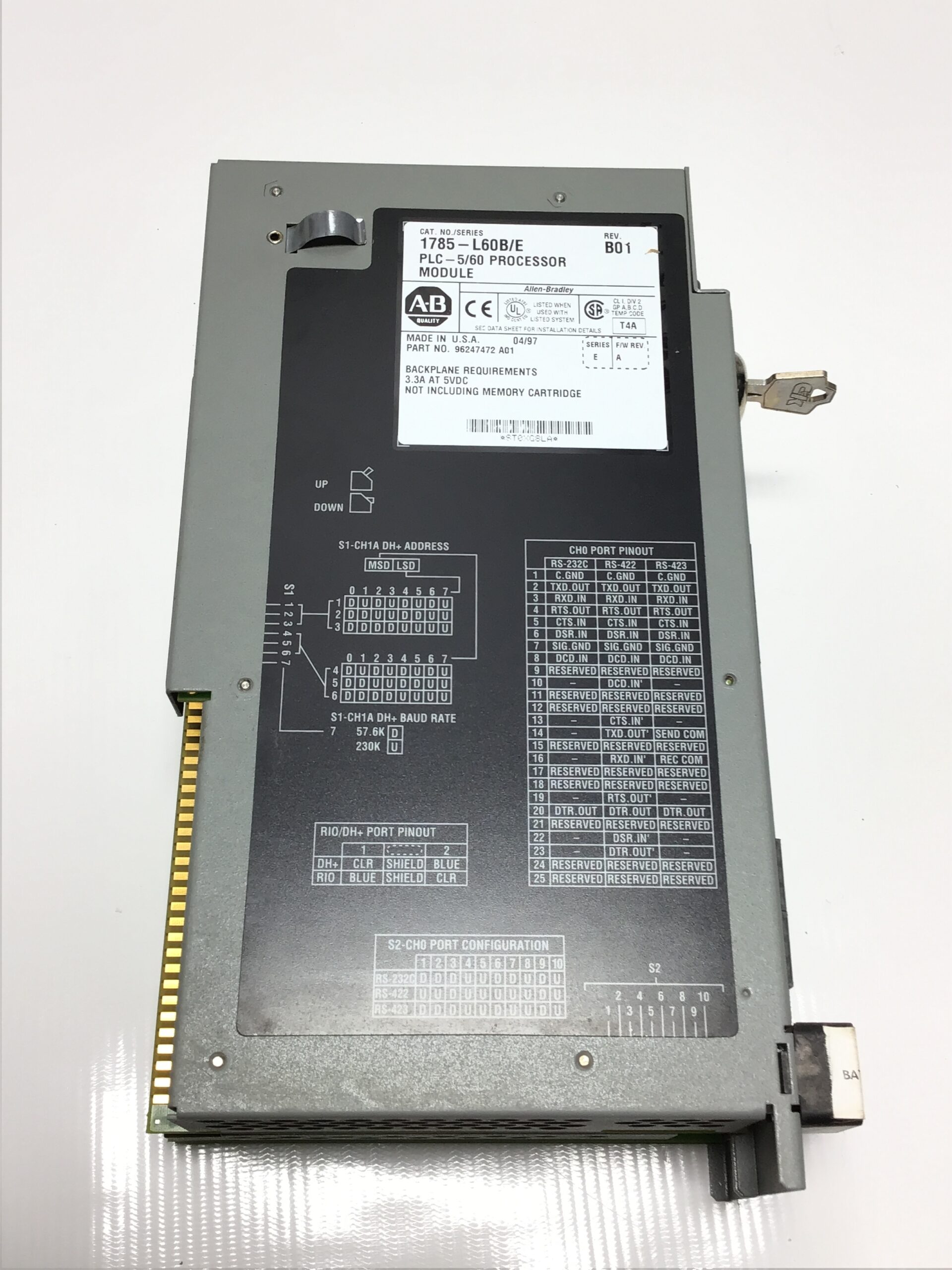
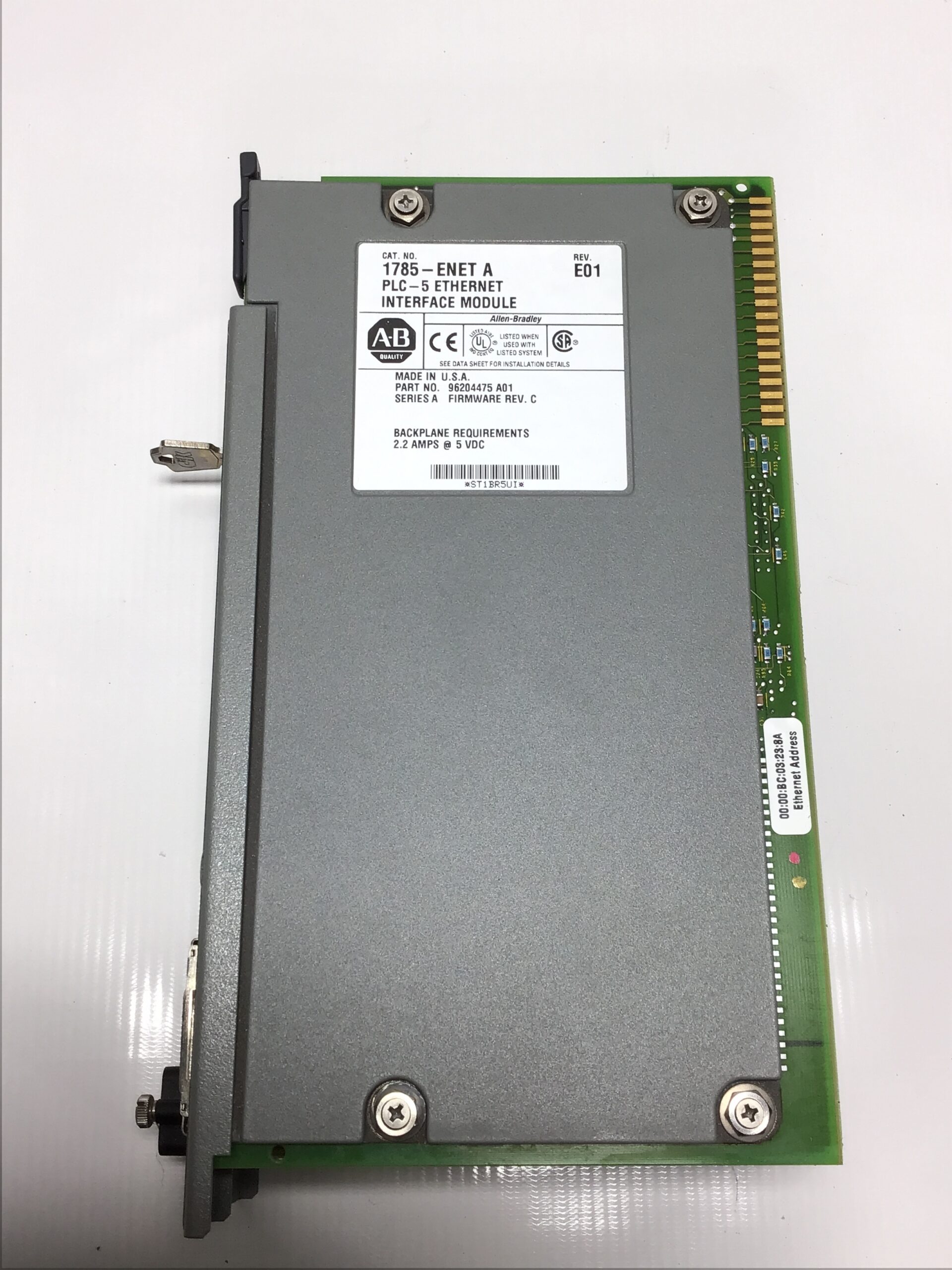
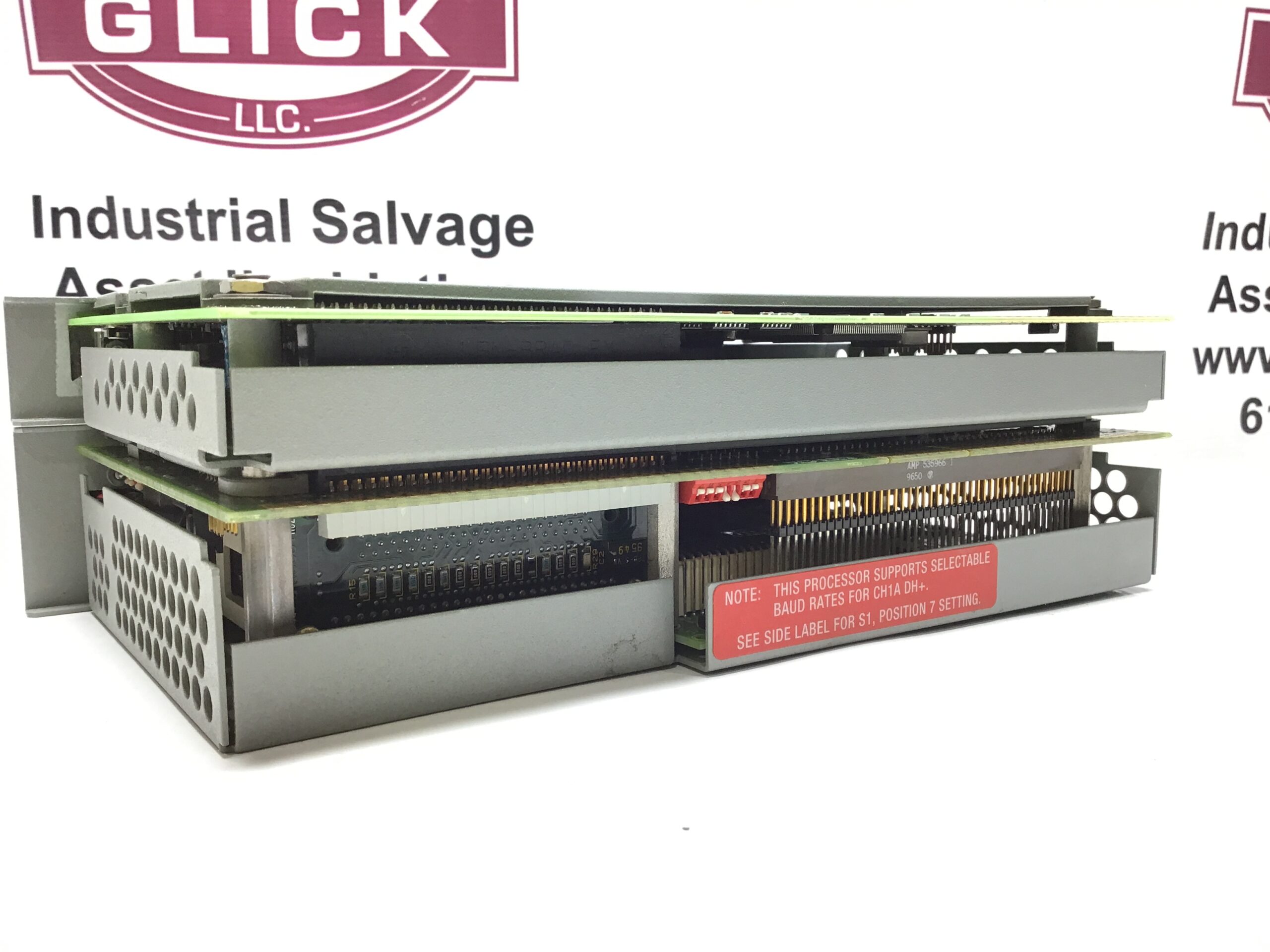
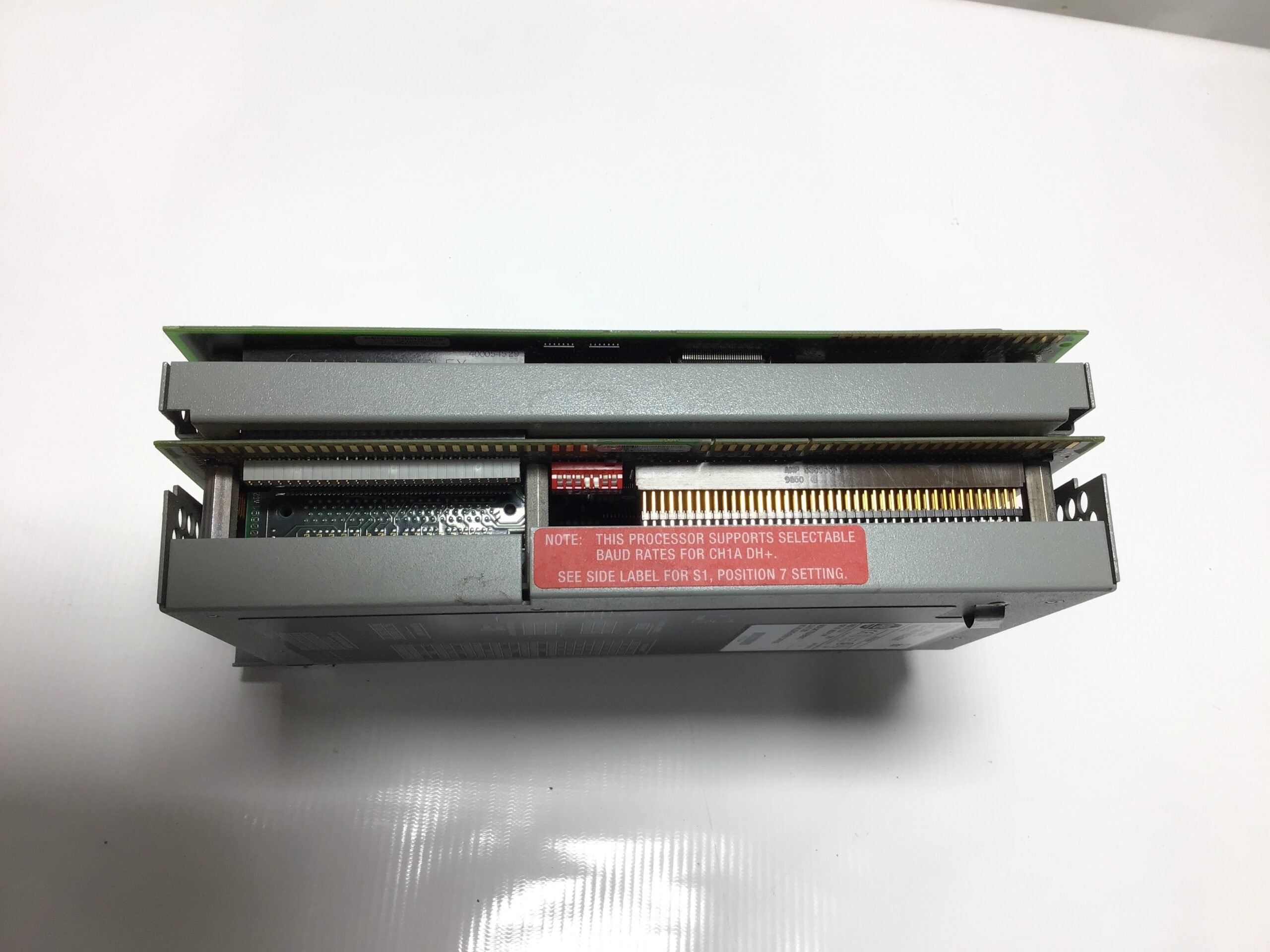
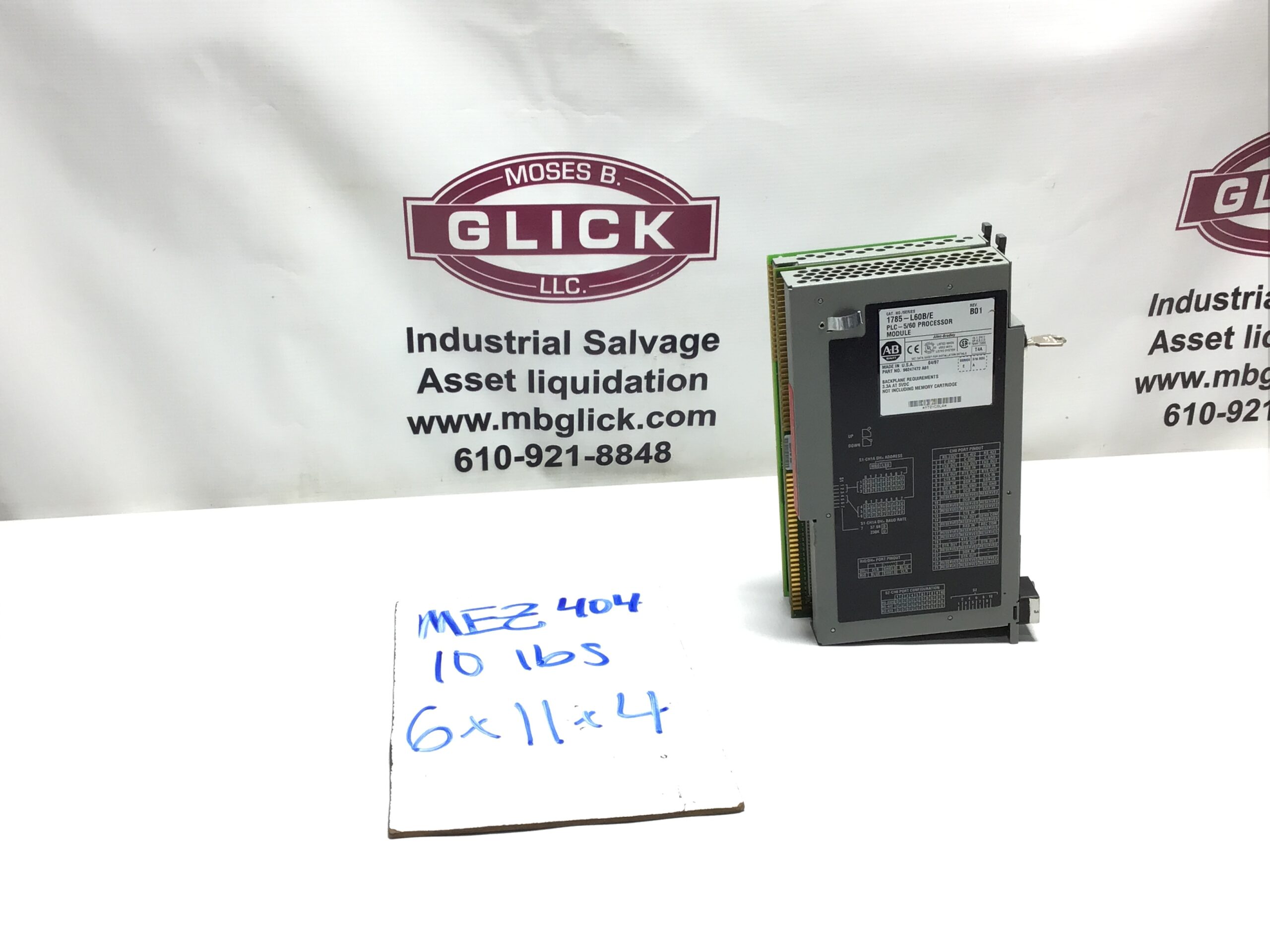
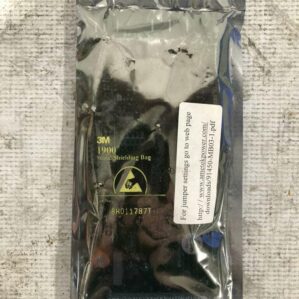
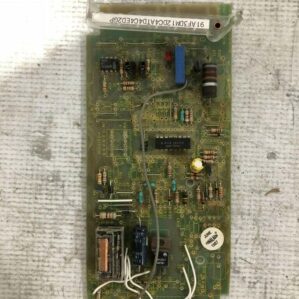

Reviews
There are no reviews yet.